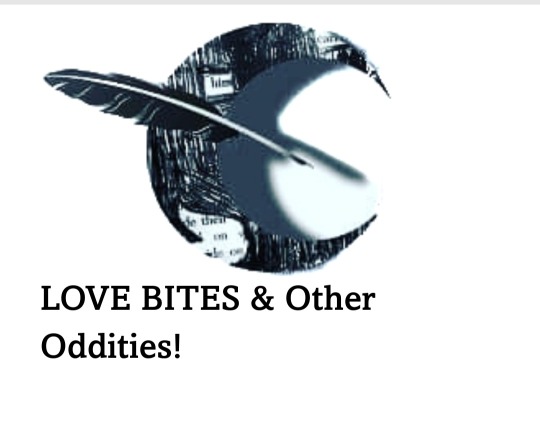#incompleteness
Quote
An endless task, the cataloguing of reality. We accumulate facts, we discuss them, but with every line that is written, with every statement that is made, one has the feeling of incompleteness.
Frantz Fanon, Black Skin, White Masks
#philosophy#quotes#Frantz Fanon#Black Skin White Masks#reality#facts#categories#incompleteness#understanding
282 notes
·
View notes
Text
Welcome to the premier of One-Picture-Proof!

This is either going to be the first installment of a long running series or something I will never do again. (We'll see, don't know yet.)
Like the name suggests each iteration will showcase a theorem with its proof, all in one picture. I will provide preliminaries and definitions, as well as some execises so you can test your understanding. (Answers will be provided below the break.)
The goal is to ease people with some basic knowledge in mathematics into set theory, and its categorical approach specifically. While many of the theorems in this series will apply to topos theory in general, our main interest will be the topos Set. I will assume you are aware of the notations of commutative diagrams and some terminology. You will find each post to be very information dense, don't feel discouraged if you need some time on each diagram. When you have internalized everything mentioned in this post you have completed weeks worth of study from a variety of undergrad and grad courses. Try to work through the proof arrow by arrow, try out specific examples and it will become clear in retrospect.
Please feel free to submit your solutions and ask questions, I will try to clear up missunderstandings and it will help me designing further illustrations. (Of course you can just cheat, but where's the fun in that. Noone's here to judge you!)
Preliminaries and Definitions:
B^A is the exponential object, which contains all morphisms A→B. I comes equipped with the morphism eval. : A×(B^A)→B which can be thought of as evaluating an input-morphism pair (a,f)↦f(a).
The natural isomorphism curry sends a morphism X×A→B to the morphism X→B^A that partially evaluates it. (1×A≃A)
φ is just some morphism A→B^A.
Δ is the diagonal, which maps a↦(a,a).
1 is the terminal object, you can think of it as a single-point set.
We will start out with some introductory theorem, which many of you may already be familiar with. Here it is again, so you don't have to scroll all the way up:

Exercises:
What is the statement of the theorem?
Work through the proof, follow the arrows in the diagram, understand how it is composed.
What is the more popular name for this technique?
What are some applications of it? Work through those corollaries in the diagram.
Can the theorem be modified for epimorphisms? Why or why not?
For the advanced: What is the precise requirement on the category, such that we can perform this proof?
For the advanced: Can you alter the proof to lessen this requirement?
Bonus question: Can you see the Sicko face? Can you unsee it now?
Expand to see the solutions:
Solutions:
This is Lawvere's Fixed-Point Theorem. It states that, if there is a point-surjective morphism φ:A→B^A, then every endomorphism on B has a fixed point.
Good job! Nothing else to say here.
This is most commonly known as diagonalization, though many corollaries carry their own name. Usually it is stated in its contraposition: Given a fixed-point-less endomorphism on B there is no surjective morphism A→B^A.
Most famous is certainly Cantor's Diagonalization, which introduced the technique and founded the field of set theory. For this we work in the category of sets where morphisms are functions. Let A=ℕ and B=2={0,1}. Now the function 2→2, 0↦1, 1↦0 witnesses that there can not be a surjection ℕ→2^ℕ, and thus there is more than one infinite cardinal. Similarly it is also the prototypiacal proof of incompletness arguments, such as Gödels Incompleteness Theorem when applied to a Gödel-numbering, the Halting Problem when we enumerate all programs (more generally Rice's Theorem), Russells Paradox, the Liar Paradox and Tarski's Non-Defineability of Truth when we enumerate definable formulas or Curry's Paradox which shows lambda calculus is incompatible with the implication symbol (minimal logic) as well as many many more. As in the proof for Curry's Paradox it can be used to construct a fixed-point combinator. It also is the basis for forcing but this will be discussed in detail at a later date.
If we were to replace point-surjective with epimorphism the theorem would no longer hold for general categories. (Of course in Set the epimorphisms are exactly the surjective functions.) The standard counterexample is somewhat technical and uses an epimorphism ℕ→S^ℕ in the category of compactly generated Hausdorff spaces. This either made it very obvious to you or not at all. Either way, don't linger on this for too long. (Maybe in future installments we will talk about Polish spaces, then you may want to look at this again.) If you really want to you can read more in the nLab page mentioned below.
This proof requires our category to be cartesian closed. This means that it has all finite products and gives us some "meta knowledge", called closed monoidal structure, to work with exponentials.
Yanofsky's theorem is a slight generalization. It combines our proof steps where we use the closed monoidal structure such that we only use finite products by pre-evaluating everything. But this in turn requires us to introduce a corresponding technicallity to the statement of the theorem which makes working with it much more cumbersome. So it is worth keeping in the back of your mind that it exists, but usually you want to be working with Lawvere's version.
Yes you can. No, you will never be able to look at this diagram the same way again.
We see that Lawvere's Theorem forms the foundation of foundational mathematics and logic, appears everywhere and is (imo) its most important theorem. Hence why I thought it a good pick to kick of this series.
If you want to read more, the nLab page expands on some of the only tangentially mentioned topics, but in my opinion this suprisingly beginner friendly paper by Yanofsky is the best way to read about the topic.
#mathblr#mathematics#set theory#diagram#topos theory#diagonalization#topology#incompleteness#logic#nLab#Lawvere#fixed point#theorem#teaching#paradox#halting problem#math#phdblr#Yanofsky#Cantor#Tarski#Gödel#Russell#philosophy#category theory
71 notes
·
View notes
Text
Something is incomplete but I can't precisely tell what. It isn't something I could point my finger at, but something is missing...
Random Xpressions
10 notes
·
View notes
Text
The sun shines; by the mailbox, leaves
of the divided birch tree folded, pleated like fins.
Underneath, hollow stems of the white daffodils, Ice Wings, Cantatrice; dark
leaves of the wild violet. Noah says
depressives hate the spring, imbalance
between the inner and the outer world. I make
another case — being depressed, yes, but in a sense passionately
attached to the living tree, my body
actually curled in the split trunk, almost at peace, in the evening rain
almost able to feel
sap frothing and rising: Noah says this is
an error of depressives, identifying
with a tree, whereas the happy heart
wanders the garden like a falling leaf, a figure for
the part, not the whole.
– Louise Glück, "Matins"
15 notes
·
View notes
Text

sol lewitt
9 notes
·
View notes
Text

[Incompleteness.]
2 notes
·
View notes
Text
this incompleteness, that no matter how hard I try, I can’t hit
And, Steve acknowledges, the repercussions from his abuse haven’t disappeared magically with time. “I think it’s why I work so hard all the time. I’ll take on other people’s work, I’ll do more than I should, because I have this need for acceptance. I need my boss to tell me that I did a good job or I’ll have this anxiety—this incompleteness, that no matter how hard I try, I can’t hit.”
— Stephanie Foo, What My Bones Know: A Memoir of Healing from Complex Trauma (Ballantine Books, February 22, 2022)
8 notes
·
View notes
Quote
Do not despise your inner world. That is the first and most general piece of advice I would offer… Our society is very outward-looking, very taken up with the latest new object, the latest piece of gossip, the latest opportunity for self-assertion and status. But we all begin our lives as helpless babies, dependent on others for comfort, food, and survival itself. And even though we develop a degree of mastery and independence, we always remain alarmingly weak and incomplete, dependent on others and on an uncertain world for whatever we are able to achieve. As we grow, we all develop a wide range of emotions responding to this predicament: fear that bad things will happen and that we will be powerless to ward them off; love for those who help and support us; grief when a loved one is lost; hope for good things in the future; anger when someone else damages something we care about. Our emotional life maps our incompleteness: A creature without any needs would never have reasons for fear, or grief, or hope, or anger. But for that very reason we are often ashamed of our emotions, and of the relations of need and dependency bound up with them. Perhaps males, in our society, are especially likely to be ashamed of being incomplete and dependent, because a dominant image of masculinity tells them that they should be self-sufficient and dominant. So people flee from their inner world of feeling, and from articulate mastery of their own emotional experiences. The current psychological literature on the life of boys in America indicates that a large proportion of boys are quite unable to talk about how they feel and how others feel — because they have learned to be ashamed of feelings and needs, and to push them underground. But that means that they don’t know how to deal with their own emotions, or to communicate them to others. When they are frightened, they don’t know how to say it, or even to become fully aware of it. Often they turn their own fear into aggression. Often, too, this lack of a rich inner life catapults them into depression in later life. We are all going to encounter illness, loss, and aging, and we’re not well prepared for these inevitable events by a culture that directs us to think of externals only, and to measure ourselves in terms of our possessions of externals.
What is the remedy of these ills? A kind of self-love that does not shrink from the needy and incomplete parts of the self, but accepts those with interest and curiosity, and tries to develop a language with which to talk about needs and feelings. Storytelling plays a big role in the process of development. As we tell stories about the lives of others, we learn how to imagine what another creature might feel in response to various events. At the same time, we identify with the other creature and learn something about ourselves. As we grow older, we encounter more and more complex stories — in literature, film, visual art, music — that give us a richer and more subtle grasp of human emotions and of our own inner world. So my second piece of advice, closely related to the first, is: Read a lot of stories, listen to a lot of music, and think about what the stories you encounter mean for your own life and lives of those you love. In that way, you will not be alone with an empty self; you will have a newly rich life with yourself, and enhanced possibilities of real communication with others.
Martha Nussbaum
#quote#philosophy#advice#cultivate a rich inner world#cultivate self-love#read a lot of stories#emotions#emotional repression#toxic masculinity#patriarchy#do not despise your inner world#incompleteness#dependency#individualism#depression#anxiety
7 notes
·
View notes
Text
Lionel Giles on Christianity, Taoism and Hegel
A foreigner, imbued with Christian ideas, naturally feels inclined to substitute for Tao the term by which he is accustomed to denote the Supreme Being--God. But this is only admissible if he is prepared to use the term 'God' in a much broader sense than we find in either the Old or the New Testament. That which chiefly impresses the Taoist in the operations of Nature is their absolute impersonality. The inexorable law of cause and effect seems to him equally removed from active goodness or benevolence on the one hand, and from active, or malevolence on the other. This is a fact which will hardly be disputed by any intelligent observer. It is when he begins to draw inferences from it that the Taoist parts company from the average Christian. Believing, as he does, that the visible Universe is but a manifestation of the invisible Power behind It, he feels justified in arguing from the known to the unknown, and concluding that, whatever Tao may be in itself (which is unknowable), it is certainly not what we understand by a personal God--not a God endowed with the specific attributes of humanity, not even (and here we find a remarkable anticipation of Hegel) a conscious God. In other words, Tao transcends the illusory and unreal distinctions on which all human systems of morality depend, for in it all virtues and vices coalesce into One.
The Christian takes a different view altogether. He prefers to ignore the facts which Nature shows him, or else he reads them in an arbitrary and one-sided manner. His God, if no longer anthropomorphic, is undeniably anthropopathic. He is a personal Deity, now loving and merciful, now irascible and jealous, a Deity who is open to prayer and entreaty. With qualities such as these, it is difficult to see how he can be regarded as anything but a glorified Man. Which of these two views--the Taoist or the Christian--it is best for mankind to hold, may be a matter of dispute. There can be no doubt which is the more logical.
-- Lionel Giles, Introduction to The Book of Lieh-Tzü
#Daoism#tao#taoism#hegel#Lieh-Tzü#Liezi#Christianity#christian mysticism#chinese philosophy#Deacon#German idealism#Terrence Deacon#Steps to a Metaphysics of Incompleteness#metaphysics of incompleteness#theology#Religion#history of religion#God#incompleteness#marx and mysticism
9 notes
·
View notes
Text
youtube
The Haunting Tragedy of THE BANSHEES OF INISHERIN
#ryan hollinger#life is like that sometimes#sort of#incompleteness#no catharsis#futility#movies#colin farrell#brendan gleeson#martin mcdonagh
3 notes
·
View notes
Text
how do conservatives think talking to children works? if a four year old came up to me and said “i’m a cat!!” i would say “really? what makes you a cat?” and they’d say some shit like “i have claws >:)” and i’d be like “oh wow, you do have claws. but wait, i thought cats had pointed ears!” and they’d say “they DO!!!” and then i’d pull up a picture of an elf and ask “is THIS a cat?” and they’d yell “NOOOOOOOOOOOOOOOOOOOO”
u wouldn’t say “fucking hell, Emily, get it together. this is the real world”
#yes this applies to gender too#if a kid says ‘i’m a girl!!’ it might be because they’re a girl or#it might be because they’ve got an incomplete picture of what a ‘girl’ is in their brains#and as a parent ur job is to help them complete those pictures#by asking them questions and giving them new information and playing w them
105K notes
·
View notes
Text
Incomplete Wish🤞
You are my incomplete wish,
In the puzzle of life, an unsolved Quiz..!!!!!
Like a painting missing its final stroke..
Or a poem waiting for words to evoke...!!!!!
An Amazing painting remained unframed..
Beautiful story still unnamed...!!!!!
Though incomplete, you hold the key, To the depths of my soul, where you'll always be 💕
In the whispers of time, as a friend you again reside,
Though not calling it love do we still lie???
0 notes
Text
Unfinished Poem
(after Mark Strand)In the drifting of the moon over the waters she saw a past fear jumping to the future : Rain was falling on her husband’s grave, while this poet was moving into her house, in the rain.In her old room the poet was writing a poem abouta woman who strolled under trees and saw death. In her thinking of death and him thinking of her the wind shifted away, the moon left, away.The…

View On WordPress
0 notes
Text
Unreadability of this
world. Everything doubles.
The strong clocks
agree with the fissure-hour,
hoarsely.
You, wedged into your deepest,
climb out of yourself
forever.
– Paul Celan, "[Unreadability]", trans. Pierre Joris
5 notes
·
View notes
Text
L’incomplétude correspond à l’impossibilité de sortir, non pas d’un format particulier, mais de tout format.
Jean-Yves, La syntaxe transcendantale, manifeste
1 note
·
View note
Text
Perfect
Perfection is subjective, a kaleidoscope of individual perspectives.
When I express that you embody perfection, it transcends the notion of flawlessness. In my perception, your beauty emanates through the lens of your grace. It resonates in the melodic cadence of your voice, echoes in the poise with which you navigate life, and radiates through the tenderness of your love. I acknowledge that you…

View On WordPress
#Art of Love#Beauty#Claim#Constellation#Define#Entirety#Erwinism#Erwinism Love Bites#Essence#Flawlessness#FYP#Grace#Heart#Incompleteness#Individual Perspectives#Lacking#Love#Masterpiece#Melodic Cadence#Perception#Perfect#Perfection#Poise#Qualities#Subjective#Tenderness#Unique#Unnecessary#Wondrous Whole#Yearning
0 notes